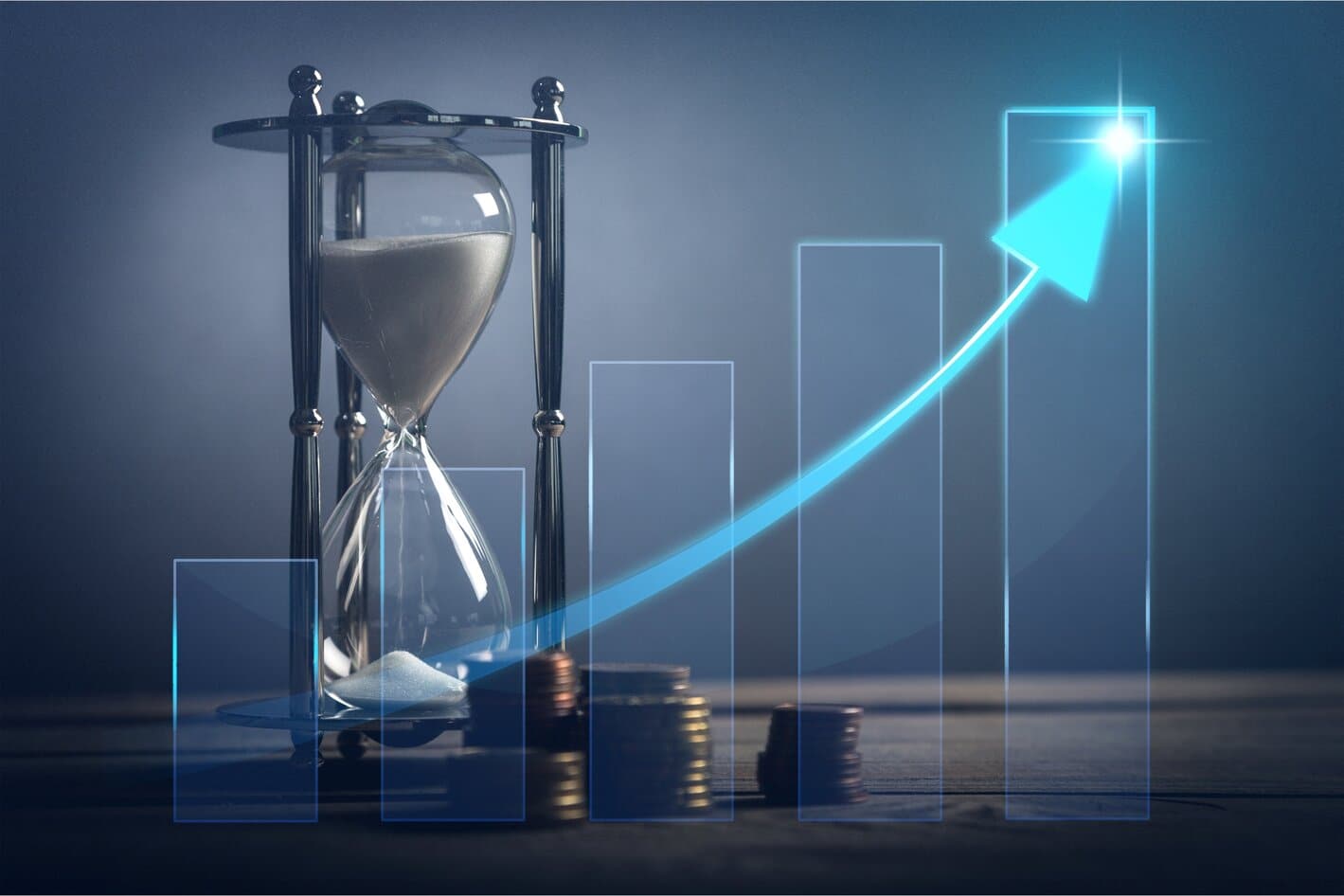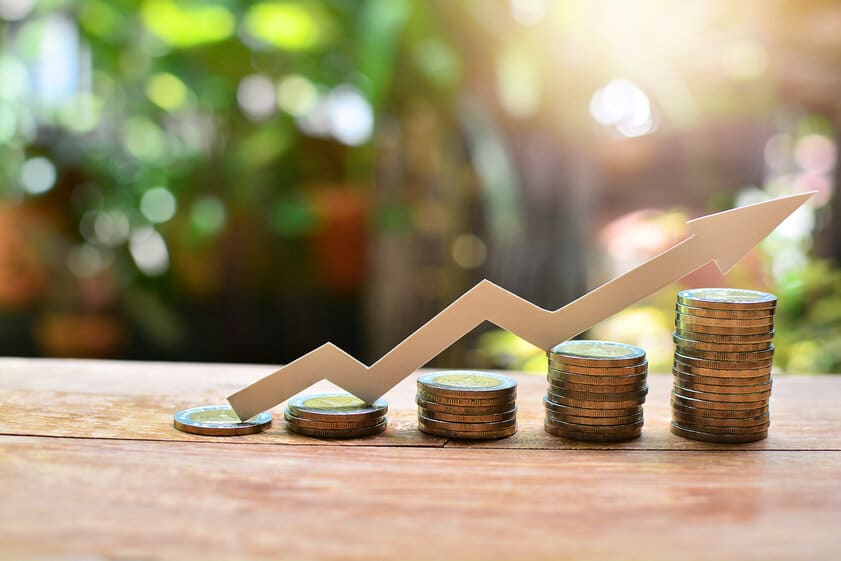Jasmine Birtles
Your money-making expert. Financial journalist, TV and radio personality.

If you’re looking to grow your money, it’s likely that you’ll have a few questions. What’s the best way to grow money quickly? What are the differences between saving vs investing? When should you choose one over the other? Can you, actually, do both?
Let’s look at the key differences between saving your money and investing it. By the time you’ve read it, you’ll have a clearer idea of where your money will be best placed to help it grow – whether in the short or longer term.

It’s actually extremely important to know the difference between saving and investing.
Most people haven’t a clue and it costs them tens of thousands of pounds a year.
This is because saving and investing need different products because they are different activities.
People don’t realise this and they think that they need to be safe, careful and cautious with their money so that they don’t lose it. This makes them put the majority of their money into savings accounts.
Bad idea!
There are various differences between saving and investing but there is one BIG one that sets them apart and you need to know it.
…is TIME
Saving is short-term
Investing is long-term
These are very important differences to remember which is why they are in bold!
Saving is for anything up to five years. It’s short-term goals such as saving for Christmas, for a new car, for a deposit on a house.
It is also, crucially, for saving for a rainy day – having a savings safety net. This is something that EVERYONE should have but most people don’t have!
A savings safety net is essential before you start investing
You should have enough money set aside in an easy-access savings account to cover your expenses for AT LEAST three months, ideally six months. You set that aside and you do not touch it unless something terrible happens that makes you lose your income. You dip into it when you don’t have enough money coming in to cover your bills.
Investing is long-term – over five years and ideally well over ten years. That is proper investing.
For long-term investing you need to put your money into products that give you a good return – a really good return.
Savings accounts are USELESS for that. They don’t keep up with inflation and for the long-term you have to beat inflation with your investments because otherwise you will actually lose money in real terms.
So for long-term INVESTING you have to put your money into products like pensions, stocks and shares or property (or ideally all three).
You should certainly have money in a savings account for ‘just in case’ but not for making money long-term.
Sadly, most people don’t know what I’ve written here so they put most of their money into savings accounts and over the decades they lose tens of thousands in real terms. Very sad.
There are times when saving is the best option. Here’s when to consider saving instead of investing:
The most important savings pot to set up is your savings safety net.
This needs to have enough money to keep you going for at least three months…ideally six months.
Set up an easy-access account that you move money into every month until you have at least enough to cover yourself for three months. Once you have that then you can start investing properly.
>If you’re looking to save up in order to make a big purchase fairly soon (within the next five years), you need to put the money into a savings account. You don’t want to find that just when you want to buy that item that your investment has dropped down. A savings account is safer and, in the short-term, it doesn’t matter much that you’re not keeping up with inflation.
If you have no savings at all, this should be your priority over any potential investments.
Investments might seem tempting, but betting all your money on something unproven is likely to be a dangerous game in the short-term.
Rather than trying to grow your small pot quickly in this way, you should try and save more first and give yourself a bit more security first.
If you want access to your money, saving is a much better option than investing.
With investments, your money will be tied up – and there’s no guarantee on when you’ll see a return.
Saving in a savings account will allow you fast access to your money when you need it. For this reason, if you’re pursuing short-term goals you should always choose this route.
Of course, the decision on whether to save or invest really comes down to what your both short and long-term goals are.

So, you’ve got a savings pot already. You want to grow your money properly for the future
Here are some things that you also need to consider if you’re ready to take that step…
Of course, you should both save AND invest.
Everyone needs to save for short-term goals and, in particular, they need to have a savings safety net to fall back on.
But everyone also needs to invest for their future so that they have a decent retirement and can even help their children’s future.
It’s important to have a balance of both: enough money to keep you going for a few months if you don’t earn, some savings pots building up money for holidays, Christmas, a new car and so on and then investments in stocks and shares ISAs, pensions and possibly even gold or property that will grow faster than inflation and keep you in clover when you retire!
Have you got any words of advice on saving vs investing? If the answer is yes, we’d love to hear them. Let us know over on the messageboards.
Want to know more about saving or investing? Try these articles next!
*This is not financial or investment advice. Remember to do your own research and speak to a professional advisor before parting with any money.

Some great information here. Thanks.
Great advice on this.